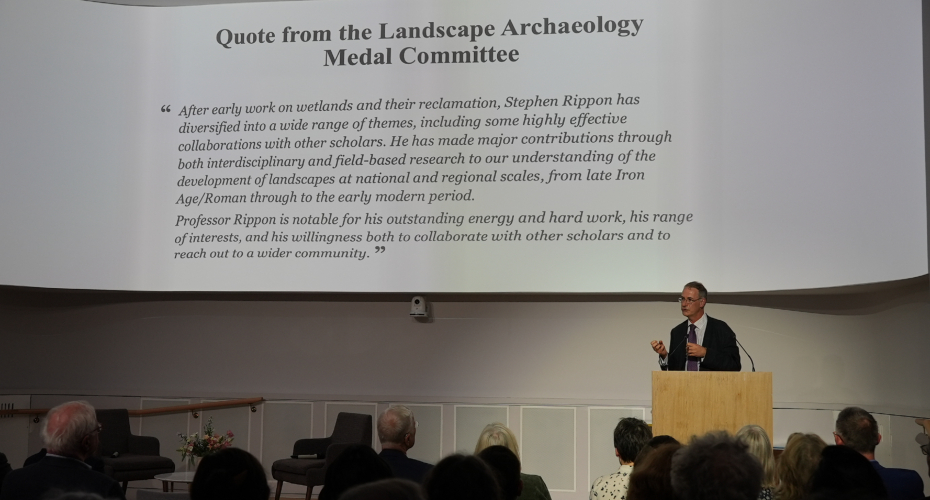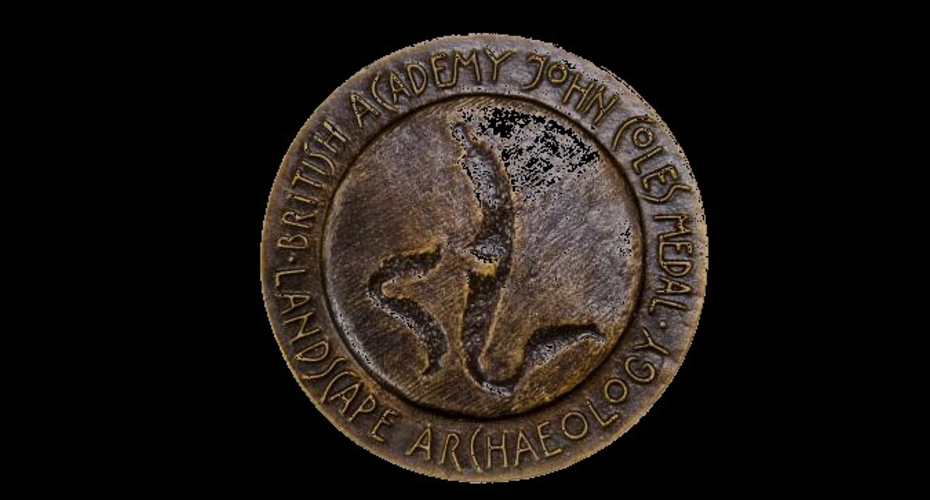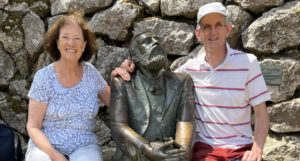University archaeologist awarded prestigious medal by the British Academy

A landscape archaeologist renowned for his expertise on Roman and medieval-era Britain has been presented with one of the British Academy’s highest honours.
Professor Stephen Rippon has been awarded this year’s British Academy Medal for Landscape Archaeology in recognition of the longstanding contribution he has made to his field.
Professor Rippon received his medal alongside eight other distinguished scholars at the Academy’s London headquarters on Thursday night (16th October).
He is just the 11th recipient of the medal since its establishment in 2007 by Professor John Coles.
“I am greatly honoured to have received this award,” says Professor Rippon, of the Department of Archaeology and History. “As the world we live in faces ever-increasing challenges from the likes of climate change, agricultural policy, and the need for new housing, I firmly believe that we cannot manage what we do not understand, and that archaeology and history must play a central role in informing future landscape policy.
“My passion for understanding the history of our countryside goes back to my childhood, and I am incredibly grateful to all of my teachers, lecturers, collaborators, and colleagues who have helped me over the years.”

Citing his “outstanding energy and hard work”, his “range of interests”, and his willingness to engage with scholars and the wider community, the judging panel said the medal had been awarded for Professor Rippon’s work across a diverse array of fields.
They said: “He has made major contributions through both interdisciplinary and field-based research to our understanding of the development of landscapes at national and regional scales, from late Iron Age/Roman through to the early modern period.”
Professor Rippon joined Exeter in 1996, having begun his academic career at Reading. His early research focused on wetland landscapes across North-West Europe in the Roman and medieval periods, and his monograph, The Transformation of Coastal Wetlands (2000), was published by the British Academy.
From here, he pursued broader interests in the origins and development of regional variation in landscape character, which he published as a trilogy of monographs: Beyond the Medieval Village (2008), Making Sense of an Historic Landscape (2012), and Kingdom, Civitas and County (2018).
Professor Rippon has also conducted research on the fate of Britain when it ceased to be part of the Roman Empire, along with the resulting transformations in landscape and society during the 1st millennium AD, which led to the creation of today’s countryside. He has explored this through several publications since 2015, with this year’s Landscape and Society in Dumnonia made possible by a National Lottery Heritage Fund. This grant supported a programme of fieldwork, community engagement, and the active involvement of skilled volunteers in the research.

Building upon a major AHRC grant to explore the city of Exeter and its hinterland, Professor Rippon is currently exploring how early medieval society developed in the South West, beyond the regions that saw Anglo-Saxon settlement.
A former President of the Society for Medieval Archaeology and Medieval Settlement Research Group, Stephen is currently Vice-Chair of the Board of Trustees of Torquay Museum.
Paying tribute to his achievement, Professor Naomi Sykes, Head of the Department of Archaeology and History, said: “For nearly three decades, Stephen has enriched our research community, and the education of our students, with his deep knowledge of, and love for, the landscape through time. On behalf of the Department and the University, I’d like to convey our most heart-felt congratulations to Stephen for this outstanding achievement which recognises all his work.”



